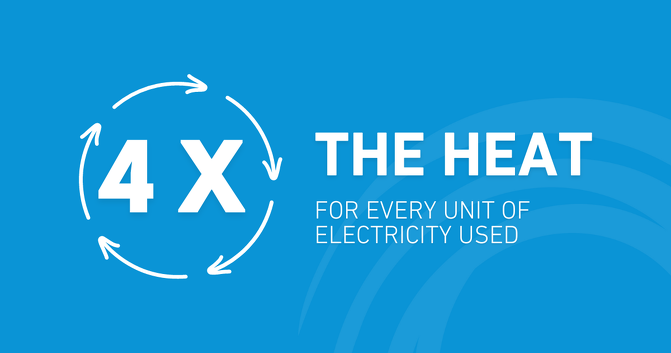Blog

The Environmental Benefits of Using Heat Pumps in New Zealand
As New Zealand prioritises sustainability and reduces its carbon footprint, homeowners and businesses are seeking greener alternatives for heating and cooling their spaces. Heat pumps have emerged as a leading solution, offering numerous environmental benefits. In this blog, we’ll explore how heat pumps contribute to a more sustainable future and why they are an excellent choice for New Zealand homes.
Reduced Greenhouse Gas Emissions
One of heat pumps' most significant environmental benefits is their ability to reduce greenhouse gas emissions. Traditional heating systems, such as gas and oil furnaces, rely on the combustion of fossil fuels, which releases a substantial amount of carbon dioxide (CO2) into the atmosphere. In contrast, heat pumps transfer heat rather than generate it through combustion. This process results in significantly lower CO2 emissions, helping to mitigate the impact of climate change.
Increased Energy Efficiency
Heat pumps are highly energy-efficient compared to conventional heating and cooling systems. Heat pumps can generate three to four units of heating or cooling for every unit of electricity consumed. This efficiency translates to less energy consumption, reducing the overall demand on power plants and lowering the carbon footprint associated with energy production. New Zealand homeowners can contribute to a more efficient and sustainable energy system by choosing heat pumps.
Utilisation of Renewable Energy Sources
Because New Zealand’s power grid is 80-85% powered by renewable energy, heat pumps can take full advantage of this clean energy. This combination can create a nearly zero-emission heating and cooling solution, substantially contributing to environmental sustainability.
Less Harmful Refrigerants
Modern heat pumps use refrigerants with a lower global warming potential (GWP) than the older refrigerants used in traditional air conditioning systems. This shift towards environmentally friendly refrigerants helps reduce the release of harmful chemicals into the atmosphere. Additionally, many heat pump manufacturers are committed to further improving refrigerant technology to minimise environmental impact.
Longevity and Durability
Heat pumps are known for their durability and long lifespan, often lasting up to 15 years with proper maintenance. This longevity reduces the frequency of replacements and the associated environmental costs of manufacturing and disposing heating and cooling equipment. Investing in a long-lasting heat pump system means fewer resources are consumed over time, supporting a more sustainable home heating and cooling approach.


Supporting New Zealand’s Sustainability Goals
New Zealand has set ambitious targets to reduce greenhouse gas emissions and increase the use of renewable energy. Homeowners and businesses can actively support these national sustainability goals by adopting heat pump technology. Heat pumps align with New Zealand’s commitment to a low-carbon future and play a vital role in the transition towards more sustainable living practices.
Conclusion
Heat pumps offer a range of environmental benefits that make them an excellent choice for heating and cooling in New Zealand. Their ability to reduce greenhouse gas emissions, increase energy efficiency, utilise renewable energy sources, use less harmful refrigerants, and provide long-term durability makes them a sustainable option for eco-conscious homeowners. By choosing heat pumps, you can contribute to a greener future and support New Zealand’s efforts to combat climate change.
If you’re considering a heat pump for your home or business, now is the perfect time to make the switch and enjoy its environmental advantages.


